595 tulosta löytyi
Skip results of view Uutiset

We know that open data supports data-driven decision-making and has the power to create true societal value. Yet data-driven decision-making is not straightforward. It is both complex and multifaceted. Behind the datasets, there is a myriad of platforms, analysts, and processes that govern the data processing that ultimately leads to insights. When looking at the data lifecycle as a whole, however, it can be hard to disentangle the processes and make sense of them. To help you get a better understanding of the processes, the Open Data Policy Lab published the Third Wave of Open Data Toolkit
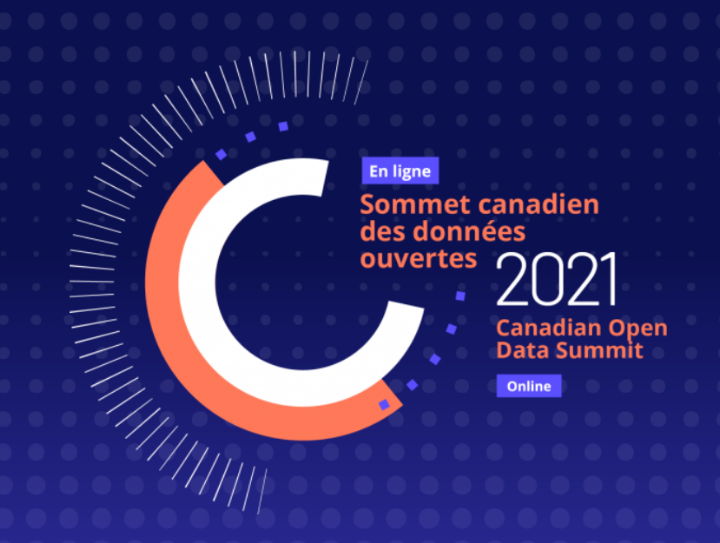
This week the Canadian Open Data Summit takes place online from 15 to 16 September! This two-day event is co-organised by the City of Montreal and the Secretariat of the Quebec Treasury Board and already celebrates its 6th birthday. The 2021 edition of the summit focuses on two major themes: Responsible Data Governance The first step in the lifecycle of data is publishing open data. What are the processes, dynamics, and frameworks that make this possible? Which actors are involved in the process? And, what are the difficulties of managing, and governing open data? Join the sessions to dive
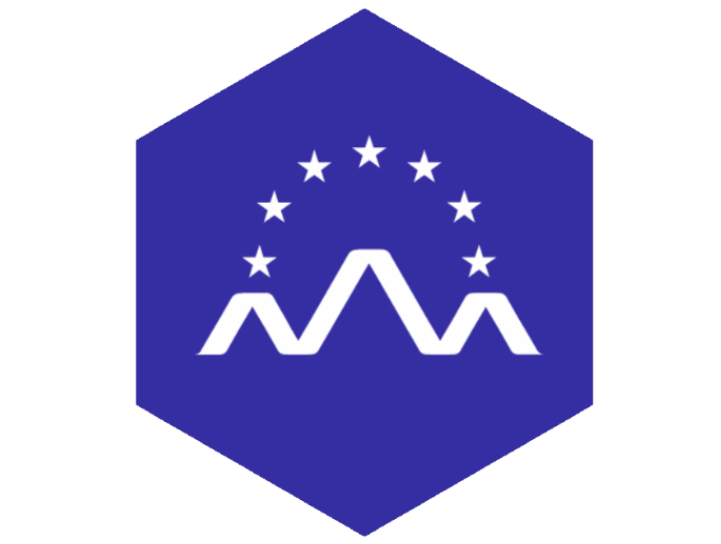
Join the hybrid edition of the European Blockchain Week (EBCW) 2021 on 20-24 September in Ljubljana, Slovenia! The event is organised in the framework of the Slovenian Presidency of the Council of the European Union. The event follows the new European Green Deal towards a green and digital transition, focusing on the role that advanced technologies such as blockchain and AI have to support this transition. The goal of the event is to show participants how technology can achieve a more competitive and resilient economy, while enabling higher quality jobs and lives in society. In the fight to
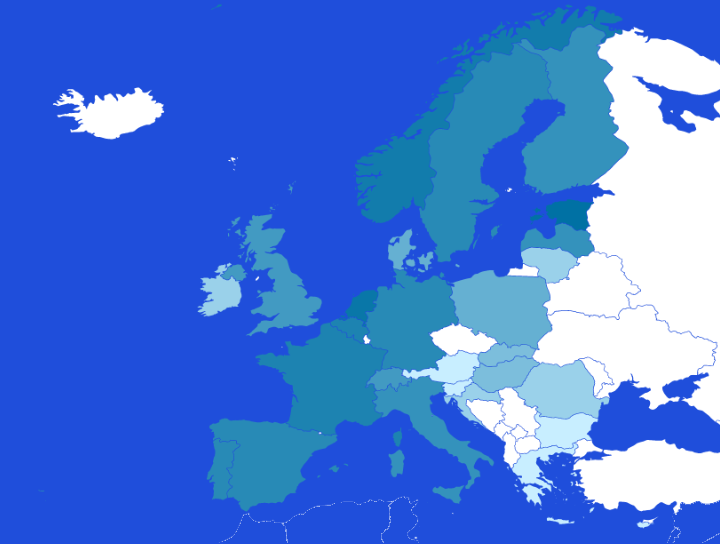
Explore the recently published dataset to get insights into cases where Artificial Intelligence (AI) was used within European public sector bodies. The dataset is published by the Joint Research Centre (JRC) in the context of the European Location Interoperability Solutions for e-Government (ELISE) action. The cases included in the dataset are collected by the AI Watch, a European Commission Knowledge for policy initiative. A series of activities, such as surveys, workshops, interviews, and desk research, have been conducted within the AI Watch to collect the cases. These cases provide a
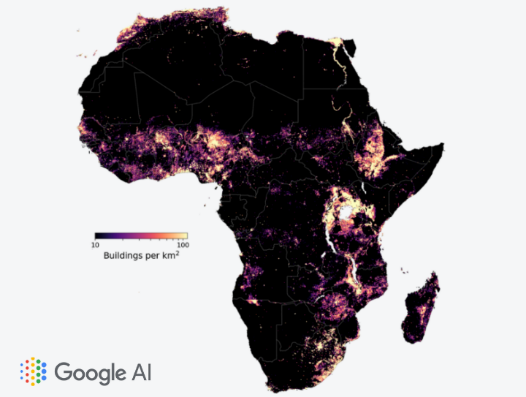
To support applications for social good, Google AI published the Open Buildings dataset. This extensive open dataset includes building footprints, which are detections of buildings on an area of land. These detections are created with high-resolution satellite images and machine learning tools. Currently, the dataset includes 516 million building detections, across an area of 19.4 million km2 on the continent of Africa (64% of the continent). Knowing whether or not a building is present is extremely useful for: Population estimation when there is rapid change, or census information is not up
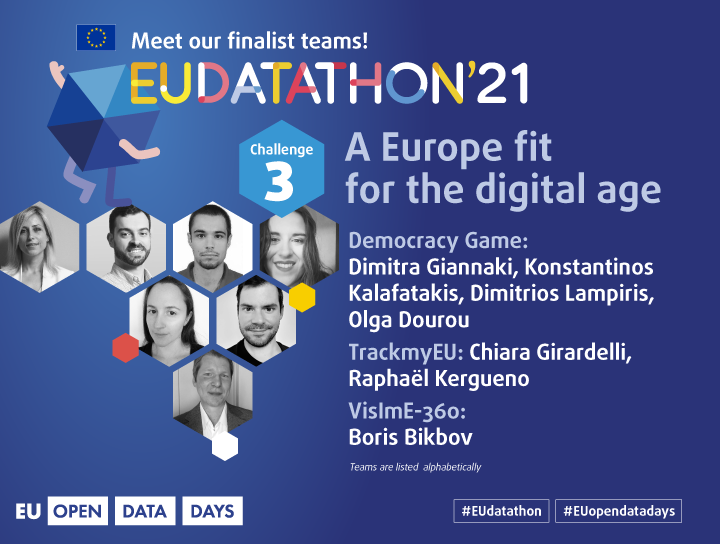
EU Datathon is an annual competition organised by the Publications Office of the EU. It invites people from all around the world to build applications based on EU open data. This year, nine teams have been shortlisted to compete in the finals. You have already been introduced to the teams for Challenge 1: ‘A European Green Deal’ and Challenge 2: 'An economy that works for people'. You will now discover the three teams that aim to tackle Challenge 3: ‘A Europe fit for the digital age’. Democracy Game Try your hand at politics with this virtual debating tool! With the purpose of engaging
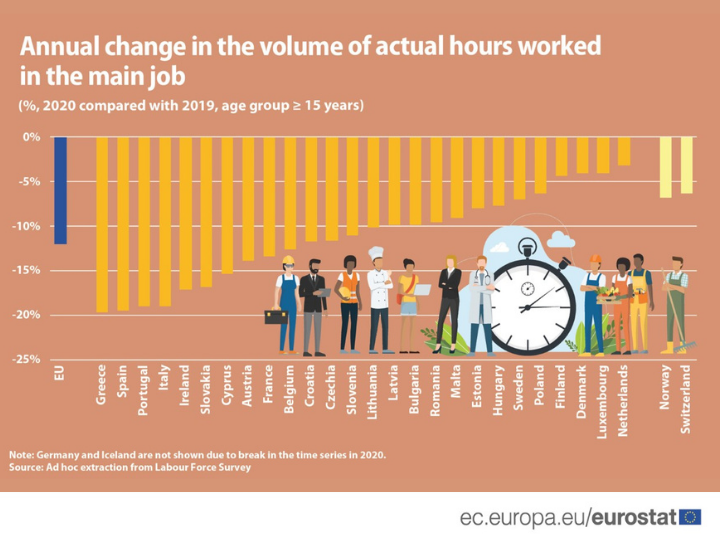
As a result of the pandemic and national lockdown measures, the way we work has drastically changed. Eurostat figures show that overall, in 2020, Europeans have collectively worked roughly 12% less, in terms of working hours, compared to 2019. This is partially due to COVID-19 response measures such as lockdowns, which led many people to be more absent from their job than before. At the national level, the hours worked declined across all Member States. The highest declines are for Greece (-19.7%), Spain (-19.5%), Portugal and Italy (both -19.0%). Some EU countries experienced only a small
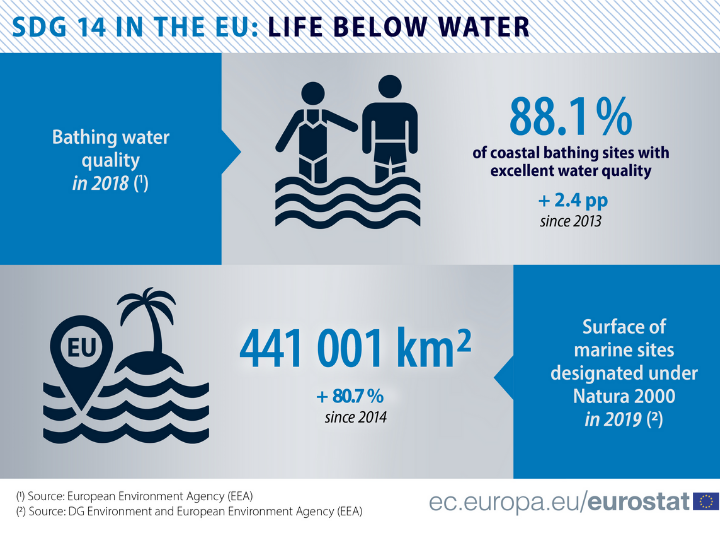
Are you curious to know which bathing sites in Europe have the best water quality? Earlier this year, the European Environment Agency (EEA) published a Eurostat dataset and several visualisations that provide an answer. The EEA classified the number and proportion of coastal and inland bathing sites based on their water quality. Bathing sites are categorised in one of the four possible classifications, ‘poor’, ‘sufficient’, ‘good’, or ‘excellent’. The assessment of the water quality is based on microbiological parameters that express how much bacteria are in the water. In line with the Bathing
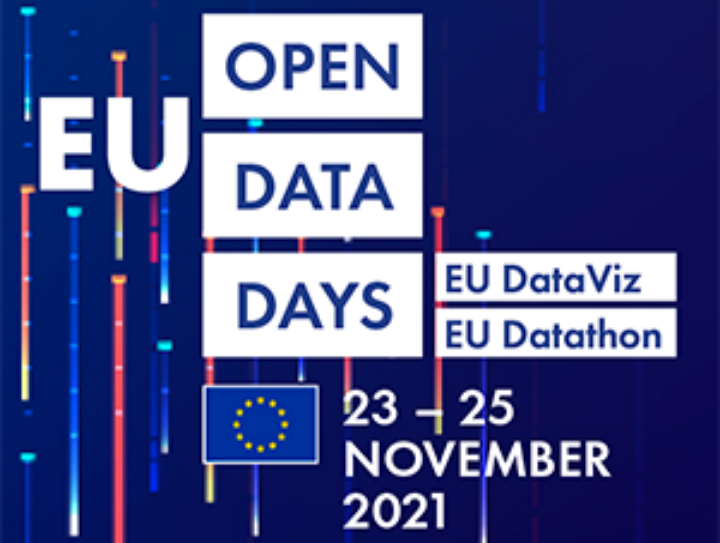
The first EU Open Data Days are gathering steam and the draft programme is now available and filled with expert speakers in various thematic sessions. Spread over three half-days, this fully online event will take place from 23 - 25 November 2021, combining the EU DataViz conference and the EU Datathon competition. The first day will cast light on open data as the driving force for shaping Europe’s digital future, including its challenges and potential. The second day will highlight the importance of communicating data efficiently using visualisations to convey the right message and understand
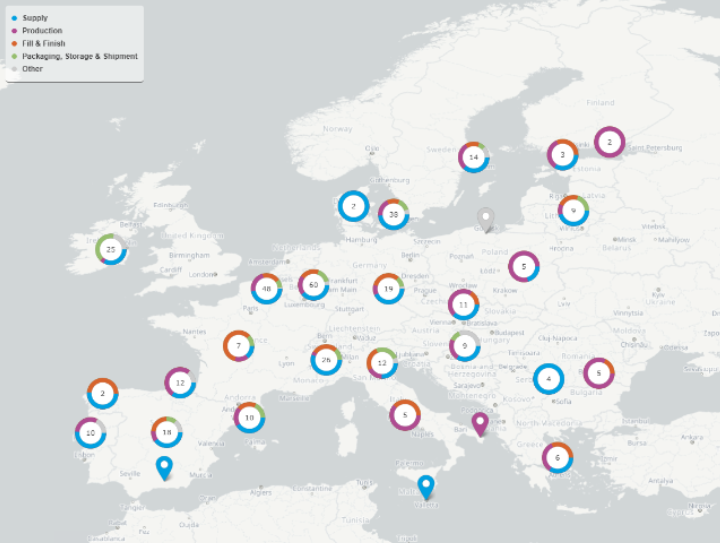
Recently, the European Commission (EC) launched an interactive map showing the production capacities of COVID-19 vaccines in the EU. The map shows where vaccine producing companies are located and in what section of the supply chain they mainly operate: supply, production, fill and finish, storage and shipment, or other. The data for the interactive map is mainly gathered by the Task Force that was set up to increase production capacity for vaccines. In this context, over 300 companies from 25 Member States discussed how to improve the current and future vaccine production during a “match
